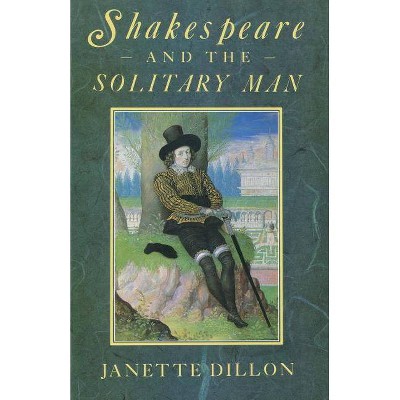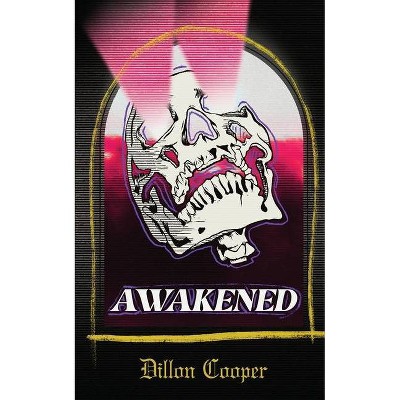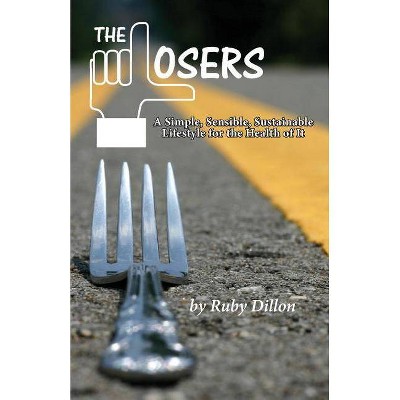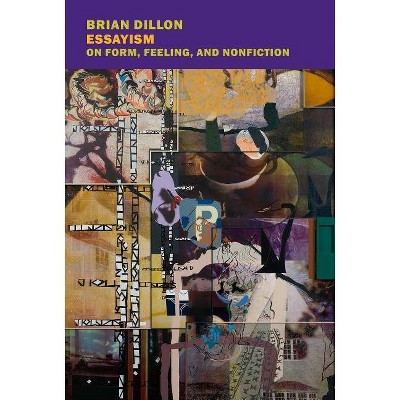Pignut and Nuncle - by Des Dillon (Paperback)
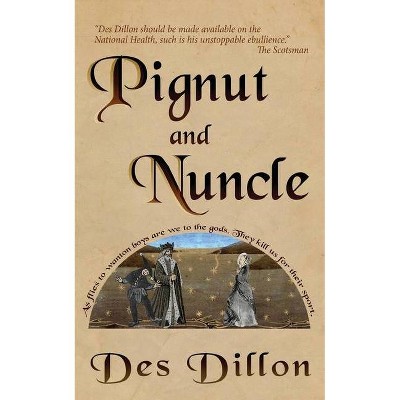
Similar Products
Products of same category from the store
AllProduct info
<p/><br></br><p><b> Book Synopsis </b></p></br></br><p>When we are born, we cry that we have come to this stage of fools </p><p>William Shakespeare, "King Lear" </p><p> </p><p>In this extraordinary novel, Des Dillon mixes familiar with surreal to explore the dark side of humanity's soul. Jane Eyre, beloved heroine of Charlotte Bronte's novel, finds herself alone and lost on a stormbound moor. Her only hope comes when she finally stumbles across two men trying to find shelter. There's only one problem, they claim to be King Lear and his faithful fool. </p><p><br></p><p>Thinking the old man insane, Jane tries to convince him that King Lear is a fictional character while, in turn, Lear thinks Jane is a madwoman. But there's more to Fool than first appears. Using his powers, he catapults them through the play of King Lear at terrifying speed. </p><p><br></p><p>Frightened and bewildered, Jane assumes she is caught up in some kind of nightmare or psychological fugue and sets about trying to avert the tragedy of Cordelia's death. At every turn, their every plan goes horribly wrong causing Cordelia's character to darken more and more so that she degenerates into the foulest of Shakespearean tyrants. </p><p><br></p><p>Forget saving Cordelia's life! Can Jane, Lear and the Fool find a way to save Cordelia's soul and thus their own? </p><p/><br></br><p><b> Review Quotes </b></p></br></br><br><p><strong>JOYCE MCMILLAN, THE SCOTSMAN</strong></p><p>What to make of this remarkable new novel by Coatbridge-born novelist and short story writer Des Dillon? Previously best known for his surreal and linguistically inventive takes on life and death in the working-class small towns of Scotland's Central Belt, in the past decade he has begun to experiment with other settings, notably in Yelena's Leningrad, published in 2013. In this new work, though, his writing fairly explodes into new territory, seeking to invade, explore and inhabit one of the most iconic settings in all of English literature - the blasted heath of King Lear's storm scene, in which the aged king, rejected by the two cruel elder daughters to whom he has foolishly bequeathed his kingdom, wanders alone with his Fool in a shocking tempest of icy wind and rain, bellowing "Blow wind, and crack your cheeks!" at the relentless elements.</p><p><br></p><p>In Dillon's vision - unfolded with cunning and passion over 200 pages of leaping prose, with occasional graphics and eloquent layout shifts - we observe this scene through the eyes of the Fool, a timeless figure of Scottish voice who often likens the events he encounters to scenes from 21st century Scottish life, and also has a deep acquaintance with the works of Kant, Descartes, and other leading European philosophers, whom he seems to have known personally. And in another dramatic twist, he finds himself observing not only the king, but none other than Jane Eyre, who in full flight across the moors from Thornfield Hall ("the woman arrives like a sudden crisp poke on a gust of wind," writes Dillon, and believe me, we don't mind) runs into whatever time vortex the Fool and Lear inhabit, and - having recognised the King's rantings - begins the thankless task of persuading the pair that they are fictional characters, who should at least have a go at changing their terrible fate, and that of Lear's beloved youngest daughter, Cordelia. The idea that Jane, too, might be a fictional character naturally never occurs to her. Lear calls her Pignut; and the Fool, who lives under Foolrules laid down in another world, is not allowed to enlighten her.</p><p>Yet there is something here about the heartbreaking futility of liberal wishes, no doubt. The enlightenment figure of Jane Eyre emerges from the narrative, and from 19th century Yorkshire, as a true heroine, who wins the love of Lear and the Fool for her dauntless and loving determination to use her strength and wits to try to make the world a better place; but she fails hideously, with every intervention the three make into Shakespeare's story resulting in more horrific final scenes, and more devastating descents into savagery and torture.</p><p>What's clear from Dillon's hugely energised storytelling, though, is that his concern is not to sneer at that failure, but to mourn it as a terrible human tragedy, to salute the efforts of Pignut and Lear, and also - somehow - to hold out some hope of resolution and redemption. Do the three succeed, in the end, in changing the direction of Lear's tragedy for good? Perhaps they do. But meanwhile, the Fool and Pignut are back on the moor, this time near Stonehenge, as the Fool witnesses another lost heroine of English literature run into their vortex; seeking death, or redemption, or perhaps the faint chance of a different and happier ending.</p><br>
Price History
Price Archive shows prices from various stores, lets you see history and find the cheapest. There is no actual sale on the website. For all support, inquiry and suggestion messagescommunication@pricearchive.us



